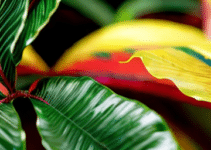Kratom, a powerful and versatile natural remedy, has long been regarded as a secret weapon in the world of traditional healing. This indigenous medicinal plant has been used for centuries in Southeast Asia and is gaining popularity worldwide as a holistic approach to wellness.
Kratom stands as a natural remedy and alternative medicine that has the potential to unlock the power of traditional healing.
It provides pain relief, enhances energy and focus, improves mood, and promotes restful sleep. With its comprehensive approach to holistic healing, kratom offers a natural remedy for those seeking an alternative medicine option.
Click here just kratom store review
History of Kratom in Traditional Medicine
Kratom has a rich history in traditional medicine, and it has been used for centuries as a botanical medicine. Indigenous communities in Southeast Asia, such as those in Thailand, Malaysia, and Indonesia, have revered this botanical medicine.
Its primary use has been for its medicinal properties, particularly its ability to provide relief from pain.
This is due to the alkaloid compounds in kratom that interact with opioid receptors in the brain.
In addition to its pain-relieving effects, kratom has traditionally been used as a stimulant to combat fatigue and increase energy levels. The versatile nature of this plant has also allowed it to act as a mood enhancer.
Certain alkaloids present in kratom leaves impact serotonin receptors, promoting overall well-being. Despite its extensive use in traditional medicine, it is important to recognize the valuable contributions of herbal remedies to the field of plant medicine.
Exploring the Benefits as a Natural Remedy
In addition to the rich history of ancient medicine, folk medicine has also played a significant role in cultural healing practices, with traditional healers relying on plant-based remedies to harness the medicinal properties and explore the vast range of medicinal uses. These traditional healing methods often involve the use of plant-based remedies, such as herbal supplements.
People believe these remedies possess medicinal properties.
Traditional healers have utilized these plant-based remedies for generations to address various ailments.
This holistic approach to healthcare embraces the belief that nature provides a bounty of healing resources. It can effectively address common ailments and provide a different perspective on wellness.
By exploring the benefits of natural remedies, individuals can discover alternative avenues for improving their health and well-being
Traditional Healing Methods
- Traditional healers have been relying on plant-based remedies for generations to address various ailments.
- These plant-based remedies, such as herbal supplements, are believed to possess medicinal properties.
- Folk medicine and traditional healing practices have played a significant role in cultural healing practices.
- The holistic approach to healthcare embraces the belief that nature provides a bounty of healing resources.
Traditional Healing Practices in Indigenous Medicine
Indigenous healing practices, rooted in centuries-old herbal traditions and ethnobotanical knowledge, encompass a wealth of natural healing methods, including herbal medicine practices, herbal preparations, and herbal remedies. These practices are deeply rooted in cultural and spiritual beliefs, emphasizing the interconnectedness of the body, mind, and spirit.
Traditional healers rely on herbal medicine practices and natural healing methods, drawing on their ethnobotanical knowledge and herbal traditions.
These healing practices go beyond the physical symptoms of illness, focusing on restoring harmony and balance to the individual and their community.
Although scientific research on the efficacy of these practices is limited, they continue to be valued as a primary source of healthcare within indigenous communities
Understanding the Role in Holistic Healing
Holistic healing encompasses a wide range of ancient practices, including traditional medicine systems, indigenous healing practices, and the use of natural remedies in traditional medicine, all of which have been used for centuries to promote wellness and balance in the body, mind, and spirit. One such practice is the use of medicinal plants in traditional medicine, which has been a cornerstone of many indigenous healing practices and systems.
The knowledge and expertise of herbal medicine practitioners have been passed down through generations, ensuring the preservation of traditional herbal medicine.
These natural remedies offer a holistic approach to healing, addressing not only physical ailments but also the emotional and spiritual well-being of individuals.
By recognizing the interconnectedness of all aspects of health, holistic healing provides a comprehensive and integrative approach to wellness
Holistic Healing
- Medicinal plants have been used in traditional medicine for centuries to promote wellness and balance in the body, mind, and spirit.
- The knowledge and expertise of herbal medicine practitioners have been passed down through generations, ensuring the preservation of traditional herbal medicine.
- Natural remedies in traditional medicine offer a holistic approach to healing, addressing not only physical ailments but also the emotional and spiritual well-being of individuals.
- Holistic healing recognizes the interconnectedness of all aspects of health, providing a comprehensive and integrative approach to wellness.
Medicinal Plant in Traditional Medicine
Kratom, a tropical evergreen tree native to Southeast Asia, has gained significant attention in recent years due to its potential health benefits, particularly in alternative healing methods and traditional medicine practices. This plant has been used in traditional medicine for centuries and is known for its analgesic, sedative, and mood-enhancing properties.
Questions remain regarding its interaction with the human body, possible side effects, recommended dosage, and legal status.
One unique aspect of Kratom is its potential as an alternative to opioids for pain management.
This characteristic has made it a subject of interest for researchers studying alternative healing methods. As the use of traditional medicine practices continues to evolve, it is important to conduct further research to fully understand the potential benefits and best practices for utilizing Kratom in plantbased healing and alternative healing methods.
Traditional Herbalism and the Use
The use of indigenous medicinal plants is a key aspect of traditional herbalism and has been passed down through generations in various traditional medicine cultures, encompassing ancient herbal remedies and alternative medicine practices. These plants, which are also known as herbal medicine therapies, have been used for centuries in ancient herbal remedies to treat a wide range of ailments.
From traditional medicine rituals to natural medicine in traditional healing, the use of these plants has played a significant role in alternative medicine practices.
Understanding the historical and cultural significance of these traditional medicine treatments can provide valuable insights into the effectiveness of herbal medicine and its continued use in modern times
Facts Supporting the Use of Indigenous Medicinal Plants
- Indigenous medicinal plants have been used in traditional herbalism for generations.
- These plants, also known as herbal medicine therapies, have a long history of being used in ancient herbal remedies.
- Traditional medicine rituals and natural medicine in traditional healing have incorporated the use of these plants.
- Understanding the historical and cultural significance of traditional medicine treatments can provide insights into the effectiveness of herbal medicine in modern times.
Ethnobotanical Knowledge in Cultural Healing
One fascinating aspect of ethnobotanical knowledge is the role it plays in cultural healing through the utilization of traditional medicine remedies and the preservation of indigenous herbalism practices. This includes holistic medicine, where plants are used in indigenous herbalism as remedies to treat various ailments and maintain overall well-being.
These herbal medicine benefits have been passed down through generations, encompassing ancient remedies and alternative medicine practices.
The techniques and practices of traditional medicine beliefs are deeply rooted in cultural rituals and traditions, making them an integral part of a community's identity.
This rich folklore offers a unique opportunity to explore the intricate relationship between plants, culture, and healing, and gain a deeper appreciation for the wisdom and resilience of different cultures and their healing traditions
Significance in Ancient Medicine
Ancient medicine holds immense significance in the development of modern medical practices due to its rich knowledge of herbal medicine, plant-based remedies, and traditional healing techniques. One notable aspect of ancient medicine is its reliance on plant-based remedies in traditional medicine.
Throughout history, civilizations such as the Egyptians, Greeks, and Chinese utilized the healing properties of medicinal plants and herbs.
These ancient healing traditions highlighted the importance of natural remedies in traditional healing, recognizing their potency in treating various ailments and diseases.
The knowledge of herbal medicine, passed down through generations, serves as the foundation of modern herbal medicine practices. Ancient medicine incorporated holistic healing practices, recognizing the interconnectedness of the body, mind, and spirit in achieving overall well-being
| Ancient Medicine | Modern Medicine |
|---|---|
| Plant-Based Remedies | Pharmaceutical Drugs |
| Traditional Healing Techniques | Advanced Medical Procedures |
| Herbal Medicine | Pharmacology |
| Holistic Healing Practices | Specialized Medical Treatments |
Folk Medicine and the Use as a Remedy
Throughout history, various cultures have relied on indigenous herbal remedies and traditional medicine systems as a means of natural healing and preserving their ancient herbal treatments. These ancient herbal treatments have been passed down through generations, forming the backbone of folk medicine practices.
Instead of solely relying on pharmaceutical drugs and advanced medical procedures, folk medicine emphasizes the use of natural healing remedies and holistic healing practices.
It honors the interconnectedness of the body, mind, and spirit, seeking to address the root cause of ailments and promote overall well-being.
This age-old belief in the power of nature and the effectiveness of traditional remedies continues to be embraced in modern times
Integrating into Traditional Healing Rituals
As traditional healing rituals continue to evolve and adapt to the modern world, the integration of alternative remedies and practices has become a fascinating aspect of these age-old traditions, blending the wisdom of folklore and the knowledge of herbal techniques to unlock the benefits across various cultures. Across cultures and regions, the wisdom and knowledge of herbal remedies have found their place within the rituals, enhancing the overall healing experience.
The incorporation of these alternative remedies serves not only to address physical ailments but also to foster a spiritual connection between the mind, body, and spirit.
By embracing the benefits of alternative healing techniques, traditional healing rituals thrive and provide holistic well-being for individuals and communities alike
the Integration of Alternative Remedies in Traditional Healing Rituals
- Alternative remedies have been successfully integrated into traditional healing rituals across various cultures and regions.
- The wisdom and knowledge of herbal remedies have played a significant role in enhancing the overall healing experience within these rituals.
- The incorporation of alternative remedies not only addresses physical ailments but also fosters a spiritual connection between the mind, body, and spirit.
- By embracing the benefits of alternative healing techniques, traditional healing rituals thrive and provide holistic well-being for individuals and communities alike.
Cultural Importance in Traditional Medicine
Within the realm of traditional medicine, the cultural importance of indigenous practices cannot be overlooked or underestimated. Traditional medicine holds immense significance in indigenous communities, relying on centuries-old healing practices that have been finely tuned over time.
These methods are viewed as a sacred gift from cultural heritage, reflecting the wisdom and knowledge passed down through generations.
Traditional healing often includes a spiritual connection, considering health as a holistic concept that encompasses the physical body, mind, and spirit.
The integration of natural remedies, holistic practices, and cultural traditions makes traditional medicine an essential aspect of healing, rather than simply an alternative
Exploring the Traditional Use in Herbal Preparations
The rich tapestry of traditional herbal medicine, with its medicinal properties and diverse uses, has been passed down through generations of healers and practitioners across time and cultures. It encompasses a mosaic of medicinal practices, therapies, and preparations.
When exploring the traditional use in herbal preparations, we uncover a world where healers and practitioners have harnessed the natural properties of plants to address a myriad of ailments and conditions.
From Asia to Africa, the Americas to Europe, each region boasts its own unique repertoire of herbal remedies and rituals that have been passed down through generations.
These ancient wisdoms continue to captivate and inspire, offering a holistic approach to healing that seamlessly integrates nature, culture, and spirituality
Discover Kratoms Evolution Centuries of Use
The Cultural Significance Kratom Use Unveiled




